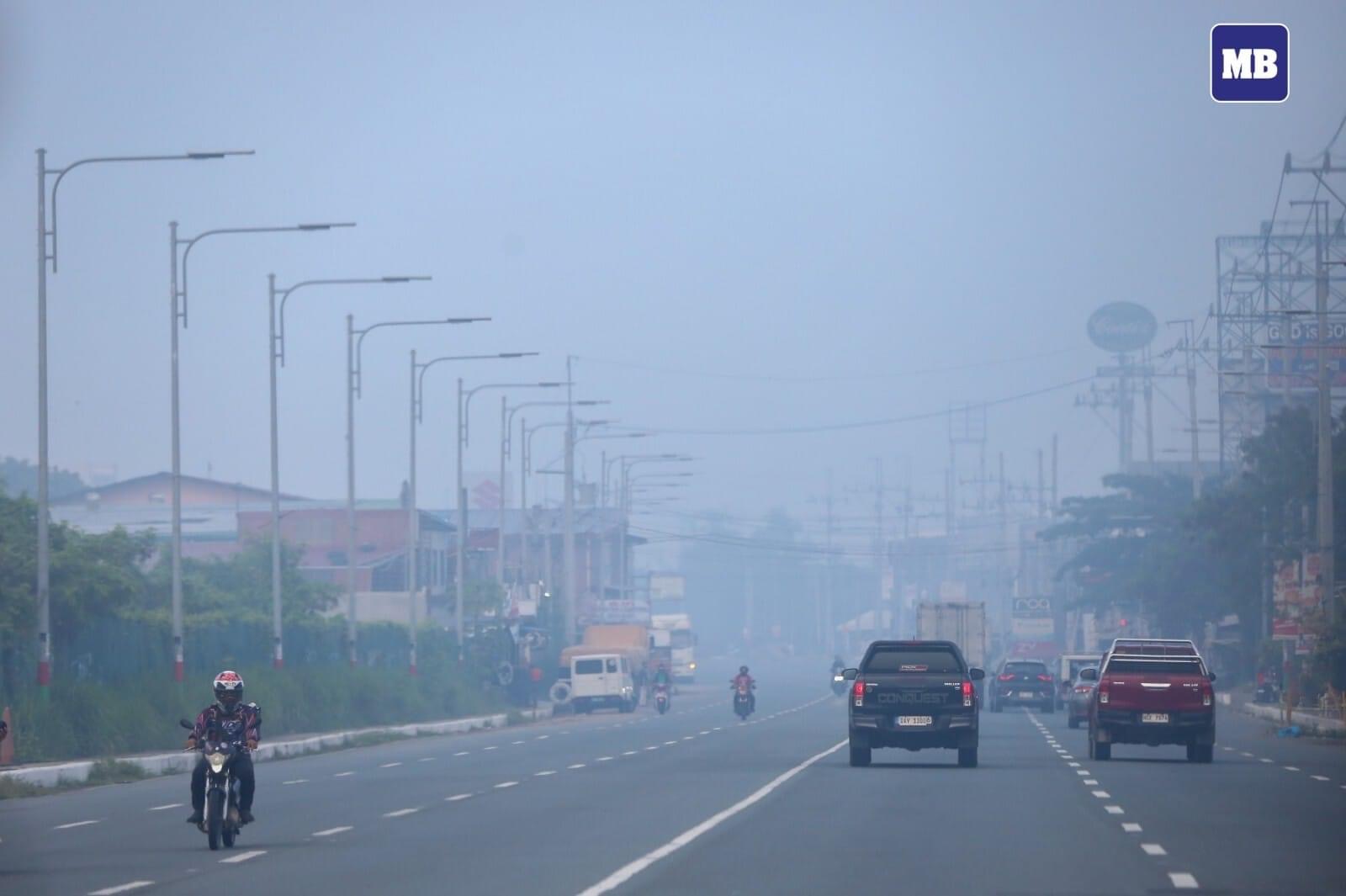Smog in Metro Manila due to heavy traffic, thermal inversion, not Taal — DENR
By Jel Santos

The Department of Environment and Natural Resources’ (DENR’s)- Environmental Management Bureau (EMB) has clarified that the smog observed in Metro Manila was due to emissions from vehicles and thermal inversion, not from the volcanic smog (vog) observed at Taal Volcano in Batangas.
Prior to this, the Philippine Institute of Volcanology (Phivolcs) has also confirmed that the smog in the metropolis did not come from Taal's vog, noting that the volcanic smog it detected from the volcano is not headed in the direction of Metro Manila.
“From initial assessment, hazy skies in Metro Manila on the 21st - 22nd of September may be attributed to ground level and suspended Particulate Matter (PM) concentration,” the DENR-EMB said in a statement released on Friday, Sept. 22.
Based on the real-time air quality measurements of the DENR-EMB, “heightened alert in some parts of Metro Manila, due primarily attributed to emissions from heavy vehicular traffic, especially during rush hour.”
“Air quality varies in time and places and can change anytime depending on pollution sources and meteorological factors,” it added.
Thermal inversion occurs when the layers of the atmosphere do not mix, causing aerosols to get trapped.
“Normally, air temperature decreases with increasing altitude, but during an inversion warmer air is held below the cooler air. An inversion can also suppress convection which is the ability of pollutant to move vertically causing visibly trapped particulate matter closer to the ground,” the agency explained.
Poor air quality was observed in Parañaque City, Makati City, and Pateros from Sept. 21 to 22.
The agency’s report noted that Parañaque City’s air quality index of 217 is “acutely unhealthy.”
“People should limit outdoor exertion. People with heart or respiratory disease, should stay indoors as much as possible. Unnecessary trips should be postponed. Motor vehicle use may be restricted. Industrial activities may be curtailed,” the DENR-EMB advised.
Meanwhile, Makati City and Pateros recorded an air quality index of 128 and 141 respectively. Both are classified by the agency as “unhealthy for sensitive groups.”
“People with respiratory diseases, such as asthma, should limit exertion,” the DENR-EMB added.